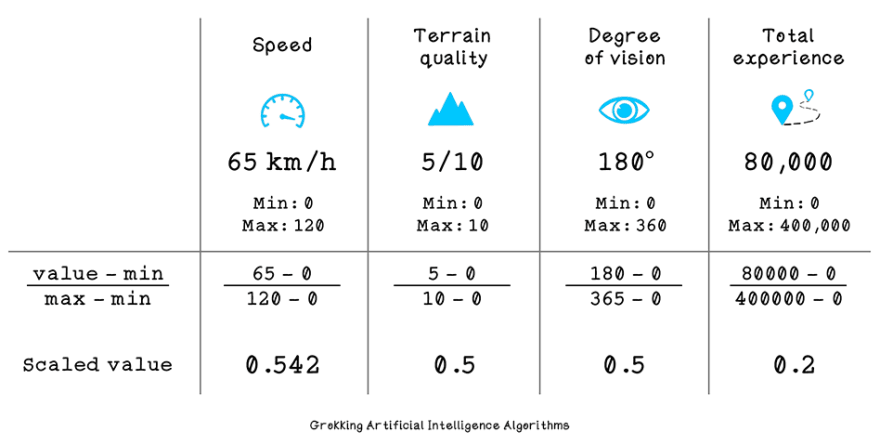To explore the workings of multi-node ANNs, consider an example dataset related to car collisions. Suppose that we have data from several cars at the moment that an unforeseen object enters the path of their movement.
- Speed— The speed at which the car was traveling before encountering the object.
- Terrain quality— The quality of the road on which the car was traveling before encountering the object.
- Degree of vision— The driver’s degree of vision before the car encountered the object.
- Total experience— The total driving experience of the driver of the car.
- Collision occurred?— Whether a collision occurred or not.
Because a single hidden node is connected to every input node but every connection has a different weight, independent hidden nodes might be concerned with specific relationships among two or more input nodes.
The nodes in a hidden layer can be conceptually compared with the analogy of ants. Individual ants fulfil small tasks that are seemingly insignificant, but when the ants act as a colony, intelligent behavior emerges.
The nodes of the network all process the inputs through a phase of training to find relationships and understand what relationships influence the classification of the situation.
ANNs are versatile and can be designed to address different problems. Learn more in Grokking AI Algorithms with Manning Publications: http://bit.ly/gaia-book, consider following me - @RishalHurbans, or join my mailing list for infrequent knowledge drops: https://rhurbans.com/subscribe.






Top comments (0)